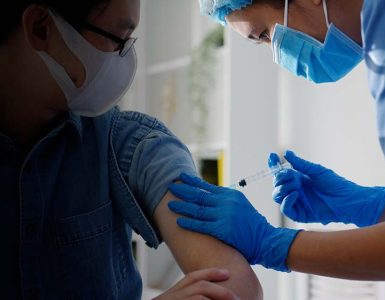A recent study found that the views of pro-vaccine friends can be leveraged to reduce the negative impact of conspiracy mentality on vaccination intentions in those with a conspiracy mindset.
COVID-19 has become one of the defining global events of the decade, affecting more lives than nearly any other phenomenon of the 20th century. It is also a negative phenomenon, misunderstood and shrouded in misinformation. It is thus a perfect breeding ground for conspiracy theories, of which there is no shortage. And recently many conspiracies arose around the corona vaccine.
A new study published in the British Journal of Health Psychology gives hope for reducing vaccine hesitancy, which the world needs a lot right now, to attain goals of herd immunity. The team of researchers found that those with the conspiracy mindset if see that their social circle or near ones are more supportive of vaccine, then their intentions or likelihood of getting vaccinated increases.
The study author Kevin Winter, a senior researcher at the Social Processes Lab at the University of Tübingen said,
Vaccine hesitancy has already been an important topic before the current pandemic as a statement of the World Health Organization in 2019 reveals, calling vaccine hesitancy a global health threat.
There is a lot of literature present about the robust link between conspiracy belief and anti-vaccine attitude. And this reluctance to get the vaccine is not just a personal matter, it can possess a public health concern. Therefore, scientists have been trying to increase the support of vaccines. That gives rise to the debate on the importance or influence of subjective norms – a person’s perception of the views and beliefs of friends and family around them.
Winter and his fellow researchers propose two hypotheses regarding the influence of subjective norms on conspiracy belief and vaccination intentions. One is that those with conspiracy mindsets reject the mainstream, to stand out, and thus remain unaffected by subjective norms. While second is that norms acceptable by close others may not reflect the norms of the entire society, in this case, those who have a conspiracy mindset may not reject subjective norms, weakening the effect of conspiracy mentality on vaccination intention.
To conclude, Winter and his team conducted 5 similar studies on 1,200 German adults by asking them questions regarding their attitude toward one or more vaccines. A merged analysis of the results showed that people with a lower conspiracy mentality were more willing to get vaccinated. However, when subjective norms for vaccines were high, the relationship between conspiracy mentality and vaccination intentions was no longer significant. For every vaccine, except flu, they found that high subjective norms weakened the relationship between conspiracy mentality and vaccination intentions.
According to Winter,
Our findings suggest that when friends and families approve of a vaccination, conspiracy beliefs no longer play a role in predicting vaccination intentions. Thus, signaling a favorable attitude towards vaccinations to close others who are prone to conspiracy theories might do the trick in reducing their vaccine hesitancy.
He says that, “Our findings generalize across a row of different vaccinations. The expectations of close others do not only play a role concerning the COVID-19 vaccination but also, for instance, for the willingness to get a travel vaccination.”

















Add comment